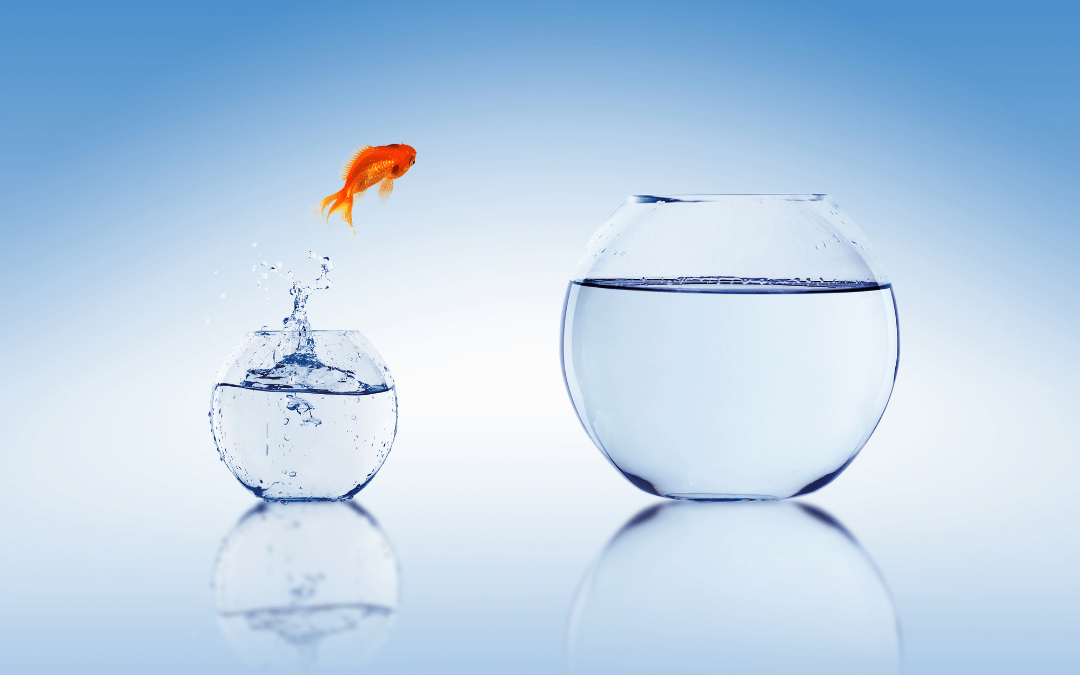Pity is rude. When we pity someone, we judge them and imply that they are unable to take care of themselves. This judgement is either rooted in arrogance or just a reflection of our own limiting beliefs. If you feel pity regularly, you have also turned it into a habit. For your own sake, it’s time to shift that.
My mom and the one-eyed dog
A few years ago, I went to the supermarket with my mom. On the way we met a woman walking her dog. My mom stopped to chat and I cuddled the amazing doggie. Huge, with short brown hair and friendly. He let me pet him. (That’s how I knew he was amazing.)
The doggy wagged his tail the entire time and I was all over him. We were super happy to meet. He also only had one eye which bothered neither of us. And then my mom suddenly said “Oh, that poor dog. Only one eye. It must be very hard.” Or something along those lines. I don’t remember her exact words but what remember vividly is the tone she said them in. Her voice was dripping with pity.
I, on the other hand, oscillated between surprise and mild annoyance. This was clearly an insanely happy dog who had already forgotten he only had one eye. And why wouldn’t he? Because it didn’t matter. He was find and happy.
I had also with difficulties suppressed an eye-role. When I thought about my mom’s reaction, I realized that she was literally repeating the same pattern my grandma had taught her. Even the slightest ailment, whether your own or somebody else’s, was greatly exaggerated. Suffering was assumed and the response was always (self-)pity.

A habit
My mom reacted with pity out of habit. It’s as simple as that. She did not look at the dog, did not assess his mood at all may not even have noticed him much. All she saw was the missing eye and it triggered her automatic reaction.
When we react to the same or similar events in our lives with the same emotion or learn to express the same feelings again and again and again, these become habits. Emotions are physical reactions. Feelings are our way to make sense of these reactions. My grandma taught my mom to react to even the slightest bit of misfortune with pity because that’s how she learned to react.
The negativity bias
Moreover, our brains are truly astounding. They filter out so much from our environments because if they didn’t we would go insane. What we consciously perceive is only a tiny fraction of the input we get from our senses. Our emotions and feelings decide what gets through to our conscious mind.
The negativity bias is so prevalent in our societies and many of us grow up around people who focus on the bad in their own and other people’s lives. It’s important to understand that this is also just a learned habit. No, people are not evil. They just learned to see the world this way.
The focus on the negative is reinforced by negative news, scary headlines and angry or critical (social) media content every single day. It’s perfectly normal if a brain who has been exposed to all of this cannot see the grin on a dog’s face. My mom’s brain honed in on the missing eye.

Why pity is a feeling worth changing
Anything we learned can be unlearned and pity should definitely be on the list for feelings you no longer want to have. Why? Because it’s rude. But what do I mean by that?
When we pity others we take away their autonomy and agency. We basically say that they can’t be happy, or can’t find a solution or can’t improve their lives. Pity is incredibly disempowering and it does not help anyone.
What’s more, to assume that someone else cannot improve or even handle what life threw at them is either an arrogant assumption that they are not as good as us or reflects a limiting belief we have ourselves. Neither has anything to do with the person or animal we pity.
What pity really tells you
When I realized that my mom pitied the dog out of habit, I pitied her. I know, right? Since my pity was not out of habit – I’m a contrary person and in a reaction to all the negativity around me I had turned myself into a regular Pollyanna – it came from a limiting belief I was projecting onto my mom.
Deep down I thought she could not escape her negativity because back then I knew nothing about the power of habits yet. I did not realise how much people – and by that I mean mostly myself – can change. And I had no idea that I was projecting my own limiting belief that people can’t change onto her.
But people (and other animals) cope with their lives every day. They are doing the best they can and more often than not that’s a fantastic job. People also have the power to change into whoever they want to be. And all of this applies to everyone. Assuming I can change but she can’t, would be arrogant, which is just another word for stupid.

Your business
So how do you stop pitying people? Maybejust understanding why you feel it in the first place has helped flip the switch already. Maybe you need to figure out your own reasons for pity first.
Do you pity people or animals on a regular basis? Who taught you to react that way? Who in your life is reinforcing this habit? Or is pity just a knee-jerk reaction to a limiting belief you have? What’s the lie you learned? Do you believe that change is impossible for others or for you?
When you pity others, you are telling yourself and them that you have no faith that they can cope with whatever situation they are in. Of course they can. Still not convinced that you need to stop pitying anyone today? Turn the tables. Look at the image at the top of the post and imagine that woman pities you. How do you feel about pity now?
Pity is rude and has nothing to do with anyone but you. Either you are judging people from a place of arrogance or use them as mirrors for your own limiting beliefs. There’s even a very good chance that you are completely imagining their suffering. It’s time to let pity go. Replace it with what really matters: focus on yourself and mind your own business.
